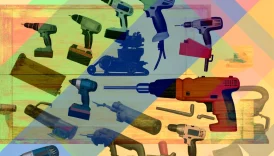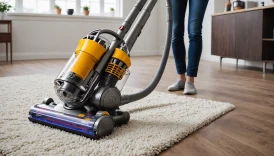Ryobi Tools: Who Makes Them and Where Are They Made?

Ryobi tools have carved out a prominent place in the power tool industry, appealing to both professionals and DIY enthusiasts alike. But who makes Ryobi tools? This brand, owned by Techtronic Industries (TTI), is renowned for its innovative designs and high-quality manufacturing that caters to a diverse audience. With manufacturing locations primarily in Asia, Ryobi tools reflect a commitment to quality and affordability, making them a popular choice among Ryobi tool owners. In this article, we’ll explore the fascinating history of Ryobi, compare their offerings with competitors like Dewalt, and provide an in-depth Ryobi product review to help you decide if these tools are the right fit for your needs.
- Ryobi Tools: Who Makes Them and Where Are They Made?
- The Evolution of Ryobi Tools
- Who Makes Ryobi Tools?
- Manufacturing Locations of Ryobi Tools
- Are Ryobi Tools Worth It?
- Ryobi vs Dewalt: A Comprehensive Comparison
- Pros and Cons of Ryobi Tools
- Famous Ryobi Tools You Should Know
- Key Takeaways on Ryobi Tools
- FAQs About Ryobi Tools
- Frequently Asked Questions
- Who makes Ryobi tools?
- Where are Ryobi tools manufactured?
- Are Ryobi tools good for DIY projects?
- How does Ryobi compare to Dewalt tools?
- What is the warranty on Ryobi tools?
- Are there any drawbacks to using Ryobi tools?
- Where can I buy Ryobi tools?
- What types of tools does Ryobi manufacture?
- Who are the typical Ryobi tool owners?
- What are some famous Ryobi tools?
- Summary
Recognized globally for their reliability, Ryobi power tools have become synonymous with quality craftsmanship and affordability. Initially established in Japan, this brand has successfully transitioned to a subsidiary of Techtronic Industries, a leading manufacturer in the power tool market. With an extensive lineup that caters to various needs, from casual home projects to professional applications, Ryobi has garnered a loyal following. This article will delve into the ownership, manufacturing practices, and the comprehensive product range of Ryobi tools, alongside a comparative analysis against other leading brands such as Dewalt. Whether you’re a seasoned contractor or a weekend warrior, understanding the nuances of Ryobi tools will empower you to make informed purchasing decisions.
The Evolution of Ryobi Tools
Ryobi tools have come a long way since their inception in 1943. Founded by Yutaka Urakami in Japan, the company initially focused on manufacturing printing equipment and metal products. It wasn’t until 1968 that Ryobi expanded its horizons into the power tools industry, releasing its first portable drill. This pivotal moment marked the beginning of Ryobi’s journey to becoming a globally recognized brand known for innovation and quality. Over the decades, Ryobi has continuously adapted to market demands, unveiling a wide range of tools that cater to both professional tradespeople and DIY enthusiasts.
The brand’s commitment to innovation is evident in its product line, which includes cordless tools, outdoor equipment, and accessories designed to enhance user experience. Ryobi’s dedication to quality and affordability has established it as a go-to choice for many consumers, making it a prominent player in the power tools market. Today, Ryobi is synonymous with reliability and performance, often being the preferred choice for those seeking value without sacrificing quality.
Who Makes Ryobi Tools?
Ryobi tools are manufactured by Techtronic Industries Company Limited (TTI), a major player in the global power tools industry. Founded in 1985 and headquartered in Hong Kong, TTI has rapidly expanded its portfolio to include several well-known brands, including Ryobi, Milwaukee, and AEG. The company’s robust infrastructure and innovative strategies have allowed it to dominate the market, with Ryobi serving as a key component of its success. TTI is renowned for its focus on research and development, ensuring that Ryobi tools consistently meet the evolving needs of consumers.
TTI’s dedication to quality is reflected in Ryobi’s manufacturing processes, which adhere to high standards regardless of location. Although Ryobi tools are often produced in countries like China, the company maintains stringent quality control measures to ensure that each product meets their specifications. As a result, Ryobi tools are not only accessible but also reliable, making them a favorite among both professionals and hobbyists.
Manufacturing Locations of Ryobi Tools
Ryobi tools are manufactured in various locations around the world, primarily in Asia. The production of these tools is strategically outsourced to countries like China, where manufacturing costs are lower, allowing for competitive pricing. Despite the geographical distance, Ryobi places a strong emphasis on maintaining high-quality standards across all production facilities. This commitment ensures that whether a tool is made in China or another manufacturing hub, it will deliver consistent performance and durability.
The global manufacturing strategy not only helps Ryobi keep prices affordable but also allows the company to respond quickly to market demands. By having manufacturing plants in different regions, Ryobi can streamline production and distribution, ultimately benefiting consumers with a wide range of tools available at their local stores. This strategic approach has positioned Ryobi as a leader in the power tools industry, appealing to a diverse demographic of tool users.
Are Ryobi Tools Worth It?
When considering whether Ryobi tools are worth the investment, it’s essential to assess their performance, durability, and overall value. Ryobi tools are often praised for their affordability and extensive product range, making them an attractive option for DIY enthusiasts and professionals alike. The brand’s focus on innovation has led to the development of versatile tools that cater to various tasks, from simple home repairs to more complex projects.
However, potential buyers should also weigh the drawbacks associated with Ryobi tools, such as limited warranties and some models featuring plastic components. While Ryobi offers a solid selection of tools, individuals looking for heavy-duty performance may find better options with brands like DeWalt. Ultimately, the decision to purchase Ryobi tools should be based on personal needs, budget, and the intended use of the tools, making it crucial to read product reviews and compare features before making a choice.
Ryobi vs Dewalt: A Comprehensive Comparison
The debate between Ryobi and Dewalt is a common topic among tool users, and for good reason. Both brands offer a variety of power tools tailored to different needs, but they cater to distinct market segments. Ryobi tools are generally more budget-friendly, making them ideal for DIY enthusiasts or those new to home improvement projects. Their accessibility and affordability make them a popular choice for casual users who want reliable tools without a hefty price tag.
On the other hand, Dewalt is often regarded as a leader in quality and durability, catering primarily to professionals and contractors who require tools that can withstand heavy use. Dewalt products typically feature more robust materials and longer battery life compared to Ryobi, which can be a deciding factor for those in need of high-performance tools for demanding tasks. The choice between Ryobi and Dewalt ultimately comes down to individual preferences, with Ryobi serving as a great entry point for beginners and Dewalt standing out for seasoned professionals.
Pros and Cons of Ryobi Tools
Ryobi tools come with a set of advantages and disadvantages that potential buyers should consider. One of the primary pros is their affordability, which allows users to access a wide range of tools without breaking the bank. Ryobi’s extensive product lineup includes everything from drills and saws to outdoor equipment, making it easy for users to find the right tool for their projects. Additionally, Ryobi is known for its innovative technology, such as the ONE+ battery system, which provides compatibility across multiple tools.
However, some cons should also be acknowledged. For instance, Ryobi tools often have a limited warranty compared to competitors, which can be a concern for users seeking long-term reliability. Furthermore, while many Ryobi products are designed for ease of use, some tools may contain plastic components that could affect their durability over time. Users should weigh these pros and cons carefully based on their specific needs and usage to determine if Ryobi tools are the right fit for them.
Famous Ryobi Tools You Should Know
Ryobi has developed a reputation for producing several standout tools that have become favorites among users. The Ryobi ONE+ 18V Cordless Drill is one of the most popular products, known for its versatility and ease of use. This lightweight drill is perfect for various tasks, from drilling holes in wood to driving screws, making it an essential tool for any DIY enthusiast. Additionally, the Ryobi 18V ONE+ Brushless Impact Driver is highly regarded for its powerful performance and efficient battery life, making it an excellent choice for those who frequently work with screws.
Another notable tool is the Ryobi 40V Lithium-Ion Cordless String Trimmer, which has gained popularity for its ability to maintain lawns and gardens effortlessly. With a strong motor and a long-lasting battery, it provides a hassle-free trimming experience without the need for gas or cords. Lastly, the Ryobi 10-inch Compound Miter Saw is celebrated for its precision and capability in cutting various materials, making it a go-to option for both professional contractors and DIYers alike. These tools exemplify Ryobi’s commitment to quality and innovation.
Key Takeaways on Ryobi Tools
In summary, Ryobi tools have carved a niche for themselves in the power tools market, appealing to a broad audience of users. Their affordability and diverse product range make them particularly appealing for DIY enthusiasts and homeowners looking for reliable tools without a significant financial investment. With a commitment to innovation and quality, Ryobi has built a loyal customer base that appreciates their products.
Nonetheless, it’s important for potential buyers to conduct thorough research and consider their specific needs before purchasing. While Ryobi tools are generally well-regarded, they may not always be the best option for heavy-duty or professional applications. By carefully evaluating the advantages and disadvantages of Ryobi tools and comparing them with other brands like Dewalt, consumers can make informed decisions that best suit their project requirements.
FAQs About Ryobi Tools
When it comes to Ryobi tools, consumers often have several questions about their products. A common query is about the range of tools Ryobi produces. The brand offers an extensive selection, including drills, saws, outdoor power equipment, and hand tools. This wide array ensures that users can find the right tool for almost any project they undertake, whether it’s a simple home improvement task or a more complex renovation.
Another frequently asked question pertains to where to purchase Ryobi tools. They are widely available in home improvement stores such as Home Depot and Lowe’s, as well as online marketplaces like Amazon. For those interested in warranty details, Ryobi typically offers a three-year warranty on their outdoor power equipment, providing peace of mind for consumers regarding their investment.
Frequently Asked Questions
Who makes Ryobi tools?
Ryobi tools are manufactured by Techtronic Industries (TTI), a multinational company based in Hong Kong that specializes in power tools and outdoor equipment.
Where are Ryobi tools manufactured?
Ryobi tools are manufactured in various locations, primarily in China, but TTI has manufacturing facilities across North America, Europe, and other regions to ensure quality standards.
Are Ryobi tools good for DIY projects?
Yes, Ryobi tools are well-regarded among DIY enthusiasts for their affordability and reliability, making them suitable for a wide range of home improvement tasks.
How does Ryobi compare to Dewalt tools?
Ryobi tools are generally more budget-friendly than Dewalt, which is known for its higher quality and durability, making Dewalt a better choice for professional applications.
What is the warranty on Ryobi tools?
Ryobi typically offers a three-year warranty on their power tools and outdoor equipment, covering defects in materials and workmanship.
Are there any drawbacks to using Ryobi tools?
Some drawbacks of Ryobi tools include limited battery life on certain models and some tools having plastic components, which may affect durability.
Where can I buy Ryobi tools?
Ryobi tools are widely available at major home improvement retailers such as Home Depot and Lowe’s, as well as online through platforms like Amazon.
What types of tools does Ryobi manufacture?
Ryobi manufactures a wide range of power tools, including drills, saws, sanders, impact drivers, and outdoor power equipment.
Who are the typical Ryobi tool owners?
Ryobi tools are popular among DIY enthusiasts, hobbyists, and homeowners looking for reliable and affordable power tools for personal projects.
What are some famous Ryobi tools?
Some well-known Ryobi tools include the Ryobi ONE+ 18V Cordless Drill, Ryobi 18V ONE+ Brushless Impact Driver, and the Ryobi 40V Lithium-Ion Cordless String Trimmer.
| Key Point | Details |
|---|---|
| Brand Origin | Founded in 1943 by Yutaka Urakami in Japan, initially manufacturing printing equipment. |
| Ownership | Owned by Techtronic Industries (TTI), a Hong Kong-based multinational company. |
| Manufacturing Locations | Manufactured in various countries, primarily China, ensuring quality across products. |
| Product Range | Offers a wide range of power tools, outdoor equipment, and hand tools suitable for professionals and DIY enthusiasts. |
| Reputation | Known for affordability and innovation but with some drawbacks like limited warranty and battery life. |
| Comparison with Dewalt | Ryobi is more budget-friendly, while Dewalt is viewed as superior in quality and durability. |
| Popular Tools | Includes Ryobi ONE+ 18V Cordless Drill, 18V Brushless Impact Driver, and 40V Lithium-Ion Cordless String Trimmer. |
| Warranty and Support | Offers a three-year warranty on outdoor power equipment, with details available on their website. |
Summary
Ryobi tools are a trusted name in the world of power tools, known for their affordability and wide range of products. Established in 1943, Ryobi has evolved into a leading brand under Techtronic Industries, offering tools that cater to both professionals and DIY enthusiasts. While they have some drawbacks, such as limited warranties and battery life, they remain a popular choice for many. With their diverse selection and commitment to quality, Ryobi tools are worth considering for your next project.





